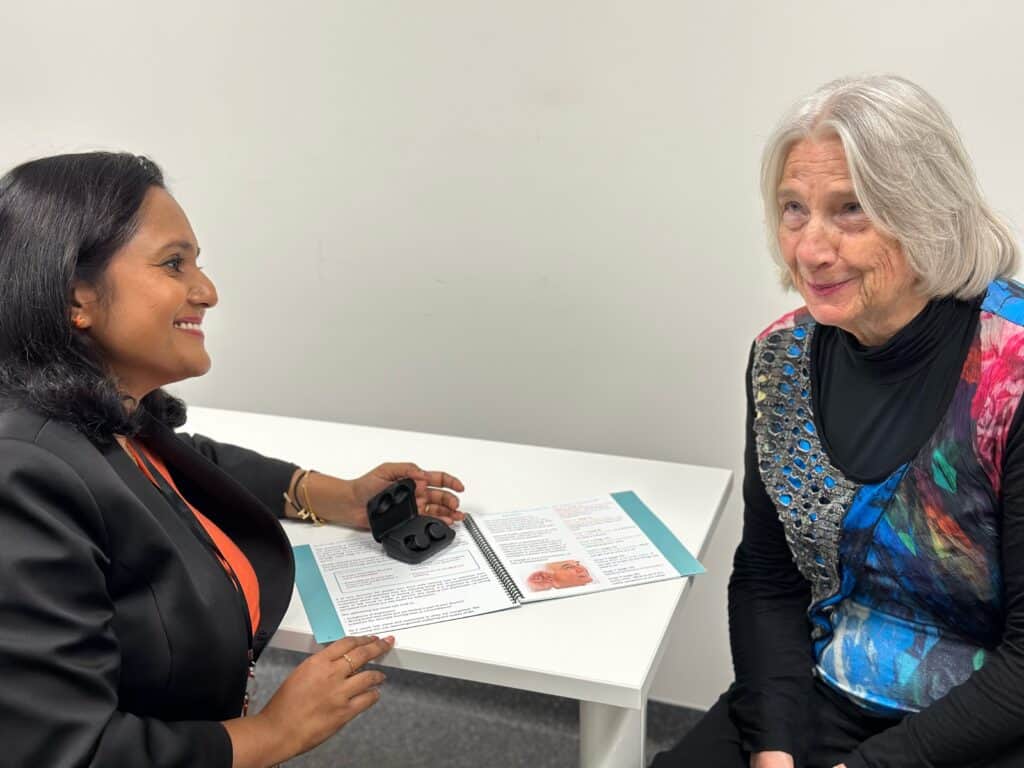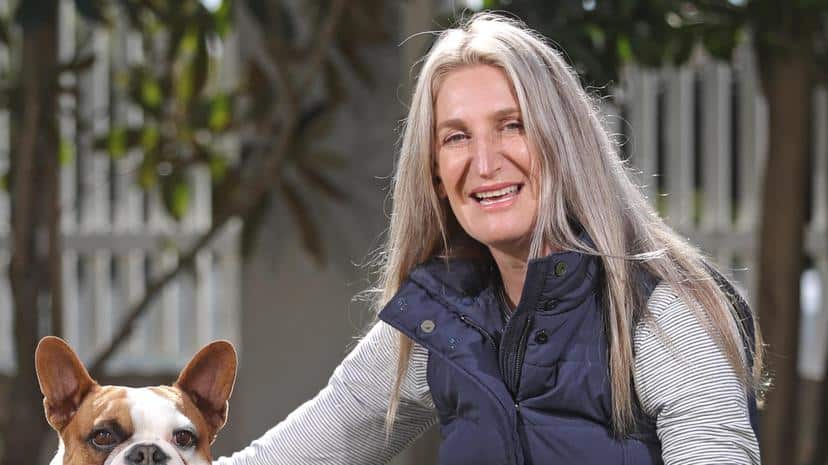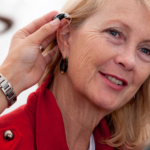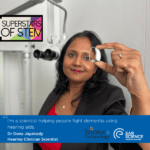Partnering with University of Western Australia (UWA), we are conducting a study to determine whether hearing amplification using personal amplification devices (hearables), together with a behaviour activation program could improve mood and social participation.
Led by Dr Dona Jayakody (Ear Science) and Dr Andrew Ford (Sir Charles Gairdner Hospital, UWA), the research team is looking for individuals 65 years or older who are experiencing mild to moderate hearing loss that is affecting their daily lives and contributing to low moods.
Available for purchase over the counter, hearables are personal amplification devices that fit inside the ear and amplify sounds through a smartphone app. They are popular with people who have mild hearing loss and want to improve their hearing in certain situations.
Outlining details of the study, Dr Jayakody said,
Participants will be divided into four groups and ultimately, we want to determine which group will benefit more from the help we are offering. Is fitting a hearable device enough to improve someone’s low mood? Or do they need more help to get back to where they were before any hearing loss and reengage in activities they may have retreated from?
Due to loss of hearing, people may give up hobbies or activities they used to enjoy, or they may not contribute to social conversations as much, due to feelings of embarrassment and frustration. Behavioural activation is a relatively simple psychological intervention that encourages participants to increase their engagement in activities and social conversations again with the aim of improving mental wellbeing.
Dr Ford said,
Hearing loss can adversely affect someone’s quality of life and contribute to feelings of loneliness, social isolation and even depression. Our behavioural activation program focusses on reducing the social isolation and mental distress that is commonly associated with hearing loss.
Michèle Drouart from Mount Claremont is a current study participant and felt the trial was made for her when she signed up.
Worrying thoughts about diminishing brain function that comes with even early mild hearing loss began to eat away at me. The hearables were a good start for working on my hearing difficulties; they were especially useful as something to fall back on while I sorted out my hearing loss needs, and it was a comfort to know I had them.
The other, and perhaps best part of the study for me has been the help I received with how to cope with the effects of hearing loss, even in the early stages. Whilst I wasn’t depressed, I had been experiencing anxiety, some of which was directly related to my hearing loss. The coping strategies I learnt from the behavioral part of the study have enabled me to manage that. This study can really help people in the early stages of hearing loss.”
The trial will take place over a six-month period and participants will be randomly appointed to one of four groups. All participants at some point within the trial will be gifted a hearable device, worth $500.
Dr Jayakody adds,
If you are having feelings of frustration in relation to your hearing and find when you are out you cannot engage in activities like you used to or you are no longer benefitting from social interaction anymore, due to loss of hearing, being part of this study could help you begin your amplification journey.”
The research study has been made possible thanks to a grant of $600,000 from the National Health and Medical Research Council.
To register your interest in taking part, go to: Ear Science Hearables and Behaviour Study or contact research team coordinators Matthew Zimmermann: 0476 987 837 or Hema Patel: 0484 068 188.

Research Lead Dr Dona Jayakody with participant Michèle Drouart






